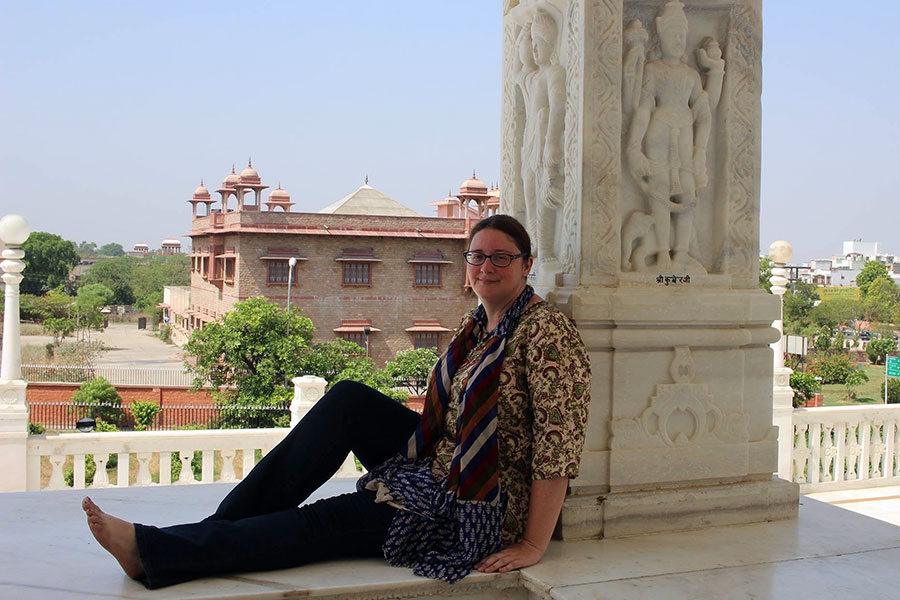FSU religion doctoral candidate wins fellowship to study abroad in India

Rebecca Peters, a doctoral candidate in the Department of Religion at Florida State University, has won a Fulbright-Hays Doctoral Dissertation Research Abroad Fellowship for 2020.
Peters will travel to Mumbai, India, in January to research how the culture of Hinduism informs content Bollywood produces, specifically the portrayal of gender roles, for its worldwide audience of 3 billion. The fellowship will provide Peters $44,000 to support her travel and research.
Given by the U.S. Department of Education International and Foreign Language Education Office, the Fulbright-Hays award’s goal is to deepen U.S. knowledge of non-western countries, cultures and languages. In order to win the fellowship, applicants must plan to conduct research in another country and language.
Peters said the grant program appreciated the cultural importance of her proposal.
“Having a background in the religion has given me a much greater understanding of the culture,” she said. “Winning is validation of my work, and it affirms what I am doing is important.”
As part of the application process, Peters had to demonstrate she could communicate in Hindi, India’s most common language. Her five previous trips to India have included attendance at language study programs and a yearlong academic study.
Religion is such an important part of daily life in India that it has an outsized effect on the country’s culture, and it is well established that popular culture such as mass-market film, in turn, shapes gender identities, Peters said. Studying Bollywood gives her the chance to analyze India’s biggest and most well-known industry and its impacts on an audience that dwarfs Hollywood’s 2.4 billion global consumers.
While in India, Peters will work with industry professionals and faculty at a Mumbai film school, but she is particularly intrigued by a planned opportunity to work with a female director because women are noticeably underrepresented behind the camera in Bollywood.
“This is a very patriarchal country. Authority and honorifics matter. When you put women in important roles, how do men react?” she said.
One of Peters’ main theses is that women directors make subtle changes to supporting female characters in their blockbuster films without making a woman the lead. In doing this, they portray stronger women in mainstream films without upsetting traditional expectations. This shift in representation has an impact on the stories being told and the women who watch them.
“Representation changes what’s possible,” Peters said.
For more information on the Florida State University Department of Religion, visit religion.fsu.edu.
